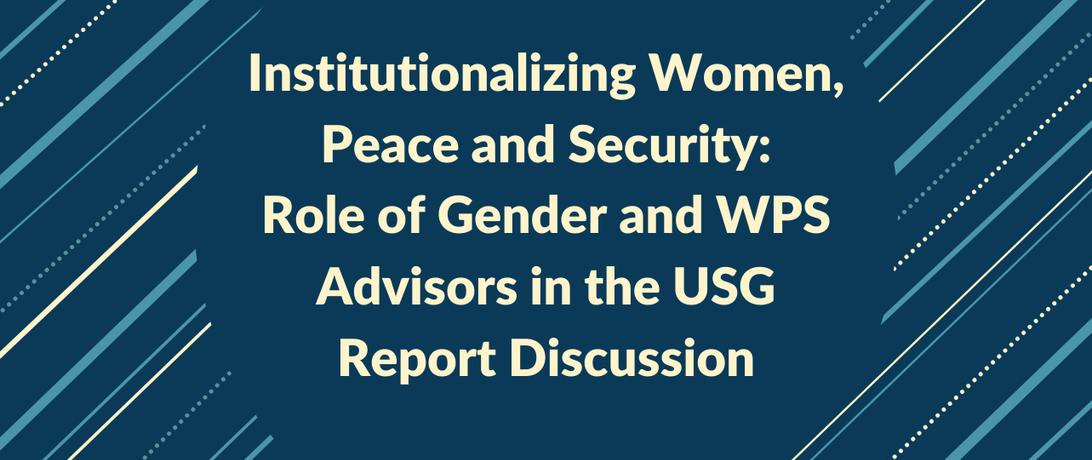The brief assesses the progress of the United States government in advancing the Women, Peace and Security agenda, specifically through the work of WPS Advisors, Gender Advisors, and related positions. The paper focuses on four key agencies: Departments of Defense (DoD), Department of State (DoS), Homeland Security (DHS), and United States Agency for International Development (USAID). OSF Director Sahana Dharmapuri introduced the paper, outlining its objectives of showing the achievements of gender advisors, pinpointing areas of improvement, and emphasizing their pivotal role in shaping more effective policies and programs.
Kelly Case, Managing Director at Strategy for Humanity, presented the key findings of the paper. The paper highlights a significant increase in WPS integration across U.S. government work. Successes range from a notable increase in WPS gender training and gender advisors to the development of agency implementation plans to advance WPS. However, there are also persistent challenges, such as inconsistent funding, advisors' multiple responsibilities and lack of authority, and insufficient political support. The paper identifies key opportunities including continued consultations with civil society organizations, increased engagement with the WPS Bipartisan Congressional Caucus, and the establishment of a Senior Coordinator or Special Representative/Envoy for WPS. The paper ends with recommendations on how to further institutionalize the WPS agenda across these agencies, such as investing in training, providing gender advisors with greater authority and resources, and increasing funding.
Ms. Dharmapuri and Ms. Case led the roundtable discussion, posing questions about how to utilize the report, anticipated challenges, and next steps to advance the advisors’ WPS work. The gender advisors highlighted a major challenge in certain U.S. government agencies, where staff members without a specific gender mandate may overlook the relevance of gender issues. Gender advisors face the additional task of socializing WPS efforts and underscore the importance of understanding and contributing to the advancement of this agenda. They emphasized the need to use appropriate language to effectively communicate about WPS and called for continued socialization and education efforts across all agencies and on Capitol Hill.
